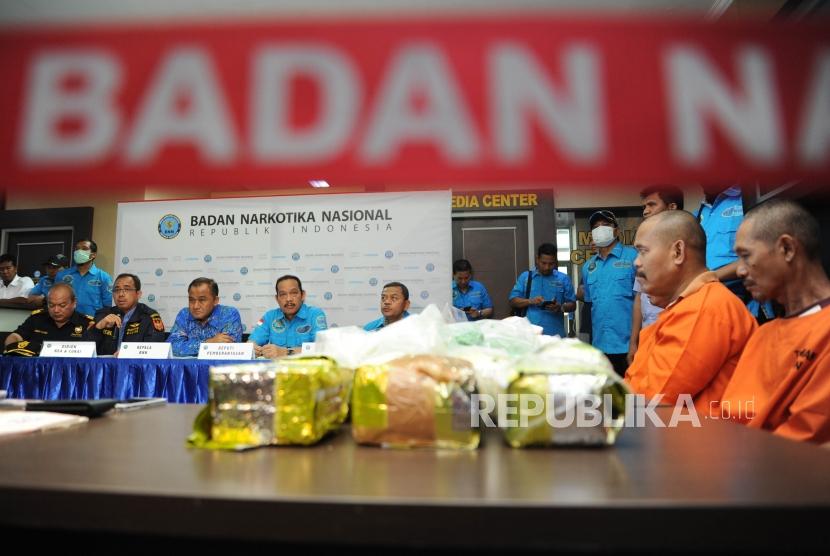REPUBLIKA.CO.ID, JAKARTA -- The National Narcotics Agency (BNN) suggests seizure of the assets of drug dealers to leave them poor as a deterrent. The agency believed death sentence is not effective enough.
"It is obvious from the many cases of drug convicts running drug transactions in prison," head of the sub-directorate of investigations of money laundering (TPPU) of BNN Andi Faisal said in an academic discussion on "Revision of Narcotics Law" here on Tuesday.
Andi pointed to cases of drug dealer in Medan, Toge alias Tugiman, who has sentenced to death twice, but still commit drug transactions in his prison. Tugiman has not been executed.
Andi said what drug dealers fear most is imposition of the TPPU law which could leave them poor. "What drug bosses fear more is confiscation of their assets by the government," he said.
He said TPPU law should be made the main instrument to eradicate illicit drug trade in Indonesia, adding through TPPU law all assets of drug dealers should be confiscated for the state.
"We should push for the imposition of law to confiscate all assets of convicted drug dealers. Through TPPU law we could confiscate their assets without the process of court of law," he said.
The arrest of couriers would not be effective in efforts to eradicate drug trade, he added.
In the first year of the present government more than 15 drug convicts had been executed but in the past year there was no execution of death row convicts after strong protest from human rightists in the country and international condemnation.
Lawmaker of the Commission III of the House of Representatives Ahmad Sahroni said currently the Parliament is seeking to revise the Law on Narcotics as the present law did not succeed in reducing cases of drug abuses in the country.
"The revision of the law should be supported by the government," Sahroni said, adding the present law is not effective in deterring drug traffic and abuses.
A BNN report said the agency unveiled 45,537 drug cases in 2017 with 58,365 suspects arrested in the country. The number of cases are 50 times larger than 868 cases with 1,330 suspects in 2016.
The number of cases would likely increase if the government would continue to delay revision of the drug law, he added.


